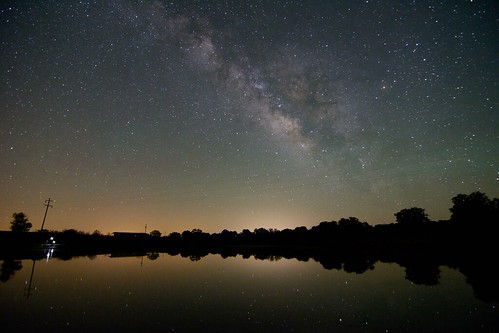
Custom Search
Howdy, Stranger!
It looks like you're new here. If you want to get involved, click one of these buttons!
Categories
- 3.4K All Categories
- 35 Nikon Z lenses
- 82 Nikon Z cameras
- 1.4K Nikon DSLR cameras
- 11 Df
- 237 D6x0/D7x0/D8x0
- 27 D300/D300s/D500
- 29 D3x00
- 45 D3/D4/D5
- 31 D5x00
- 95 D90/D7x00
- 388 Nikon Lenses
- 9 Videos, Nikon et. al.
- 52 Nikon 1
- 18 Nikon Film Cameras
- 56 Nikon Flashes
- 25 Nikon Compact Cameras
- 49 Nikon Software
- 26 Nikon Deals
- 767 General Discussions
- 49 Gear Reviews
- 182 Other Manufacturers
- 105 Fun & Weird
- 128 Photo-a-day
In this Discussion
Who's Online (0)
Nikon D7100 & Milky Way (Time Lapse)
 Harles99
Posts: 6Member
Harles99
Posts: 6Member
Havent seen a lot from the Nikon D7100 in terms of Astrophotography. The 24mp sensor makes for some nice night time images. There was noise in the original image (not too bad but still visible), but it cleans up nicely in post. Happy with the results and the Nikon D7100. Will be glad to use it along side the Nikon D4.
I did notice a small bit of flickering in the time lapse. All the settings where set on manual (M) mode. I did recheck my settings and I had the Noise reduction set to "Normal" instead of "off" and that might have introduced some of the flicker (I keep it "off" on my D4 and get no flicker). It goes away at about the half way mark of the time lapse. Not a huge issue just have to remember for next time.
Had the camera set a few feet off of our Bass pond to get the reflection of the stars of the water. The green tint seen floating in the sky is Airglow and can be seen only in dark/clear skies. If you look closely you can see a few meteors and satellites streaking across the sky.
Time Lapse workflow: Nikon D7100 -> Adobe Camera Raw -> After Effects -> Premier Pro -> Youtube. (WATCH IN HD)

Settings for this shot:
Nikon D7100 & Tokina 11-16mm f2.8 @ 11mm
30" second exposure, ISO 3200, WB 4000K

Thanks for looking! >-
>-
I did notice a small bit of flickering in the time lapse. All the settings where set on manual (M) mode. I did recheck my settings and I had the Noise reduction set to "Normal" instead of "off" and that might have introduced some of the flicker (I keep it "off" on my D4 and get no flicker). It goes away at about the half way mark of the time lapse. Not a huge issue just have to remember for next time.
Had the camera set a few feet off of our Bass pond to get the reflection of the stars of the water. The green tint seen floating in the sky is Airglow and can be seen only in dark/clear skies. If you look closely you can see a few meteors and satellites streaking across the sky.
Time Lapse workflow: Nikon D7100 -> Adobe Camera Raw -> After Effects -> Premier Pro -> Youtube. (WATCH IN HD)

Settings for this shot:
Nikon D7100 & Tokina 11-16mm f2.8 @ 11mm
30" second exposure, ISO 3200, WB 4000K

Thanks for looking!
Tagged:
Disclaimer: This site has no affiliation with Nikon Corporation or any of its subsidiary.
Disclosure: [NR] is sponsored by displaying advertising banners and links.
All trademarks and brands belong to their respective owners.
Want to advertise on NikonRumors.com? Contact [NR].
Copyright © 2008-2017 NikonRumors.com.
See our Privacy Policy.
Disclosure: [NR] is sponsored by displaying advertising banners and links.
All trademarks and brands belong to their respective owners.
Want to advertise on NikonRumors.com? Contact [NR].
Copyright © 2008-2017 NikonRumors.com.
See our Privacy Policy.

Comments
You really see the colors and nebulas of the Milky Way.
A few technical questions because it's something that I'd like to try in the future.
- How did you do your light metering? With an external meter or via the in camera meter (and did you use spot, metrix,...)?
- How many photo's did you take for this sequence?
- When you talk about noice reduction being on do you mean "long exposure noice reduction" or "normal noice reduction".
- What were your noice reduction settings for post processing?
- Is that the sun setting at the beginning of the movie? If so, how did you deal with the changing light levels throughout the movie?
- Anything else you care to share with someone who would want to give it a try?
cant take too much of that it starts to blow my mind and freak me out!!
And this is what makes astrophotography so fascinating..... we can look to more on astrophotography in the coming months